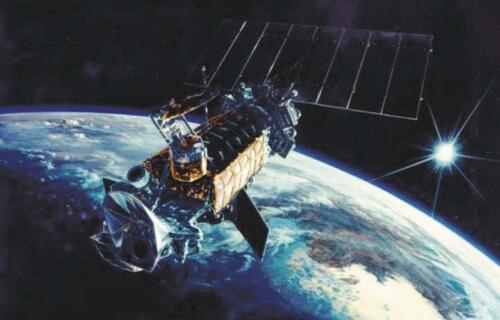Authored by Luke Widenhouse via RealClearDefense,
In February, it was revealed that Russia has been developing a nuclear-armed anti-satellite weapon. The Biden administration's response has focused mainly on arms control efforts aimed at preventing Russia from acquiring a space-based nuclear weapon in the first place. These efforts are important, but they are also insufficient. Steps must be taken now to prepare for the possibility that diplomacy fails. Nuclear anti-satellite weapons have the potential to fundamentally alter existing nuclear paradigms, creating a much more destabilizing environment than exists today. The U.S. must take action now to ensure it is ready to deal with the challenges posed by nuclear weapons in space. By preparing now, before nukes are put in orbit, the U.S. can better work to prevent such a day from ever happening at all.
U.S. deterrence strategy has long centered on its ability to tailor both conventional and nuclear response options to a wide range of different contingencies, as well as deliberate ambiguity surrounding when it would use nuclear weapons. Both these concepts would be thrown out the window if a nuclear anti-satellite weapon were detonated today. While the exact capabilities of Russia's space weapon are unknown, it is likely to pose as much a threat to its own satellites as it is those of the United States.
In May, then-Assistant Secretary of Defense for Space Policy John Plumb testified that Russia's weapon would be "indiscriminate," and "pose a threat to all satellites operated by countries and companies around the globe." The U.S. would therefore likely be left without the ability to retaliate against Russia in space if it detonated its weapon. The only option would be to strike targets on the ground. At present, conventional U.S. forces rely heavily on access to satellite-provided GPS, intelligence, and communications. A conventional strike in this environment would be extremely difficult, if not impossible, to carry out. A nuclear strike would be more feasible (though also challenging). A serious conversation should address whether a surface nuclear strike would be an appropriate response to a nuclear attack that does not directly kill people on Earth.
However, it is still critical that the president retain a variety of options to respond to the use of such a weapon. Thus, central to deterrence in a world of nuclear anti-satellite weapons will be the ability of conventional military forces to operate without access to satellites.
If satellites went down in the aftermath of the detonation of a nuclear space weapon, the ability of long-range strike fighter aircraft and bombers to carry out non-nuclear surface attacks against enemy targets would be crucial to maintaining the option of a conventional response to such an action. There have been some efforts to improve the ability of U.S. forces to fight in an environment without access to space, but these have been limited compared to activities aimed at maintaining such access. The latter efforts are important, but they will likely not be options once a nuclear anti-satellite weapon goes off.
The Navy and Air Force, with support from the Space Force, should wargame different "denied space" contingencies aimed at learning how to operate in an environment without access to satellites. The lessons from these wargames should then be applied and continued in actual live military exercises. These exercises would be aimed both at training pilots, aircrews, and commanders to conduct operations in a denied space environment but would also demonstrate to Russia and other potential U.S. adversaries that it will always have the option of retaliating with varying degrees of force to any type of nuclear aggression.
The U.S. should continue pursuing arms control efforts aimed at preventing the proliferation of nuclear weapons in space. However, it must also be prepared for the possibility that these efforts fail. By preparing conventional strike fighter assets to conduct operations in a denied space environment, the U.S. will be adequately ready for a world where nuclear weapons are orbiting the Earth.
Luke Widenhouse is a research assistant at the Yorktown Institute and rising senior at St. John’s College in Annapolis, MD.
